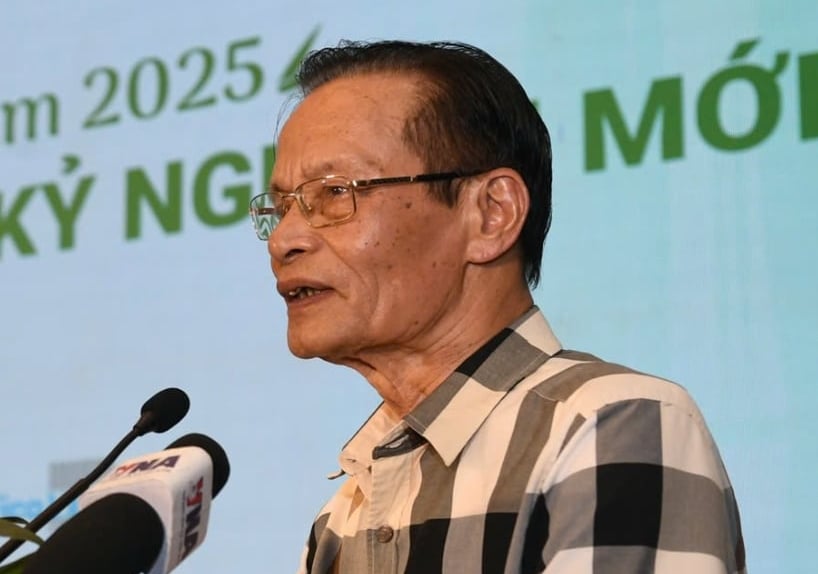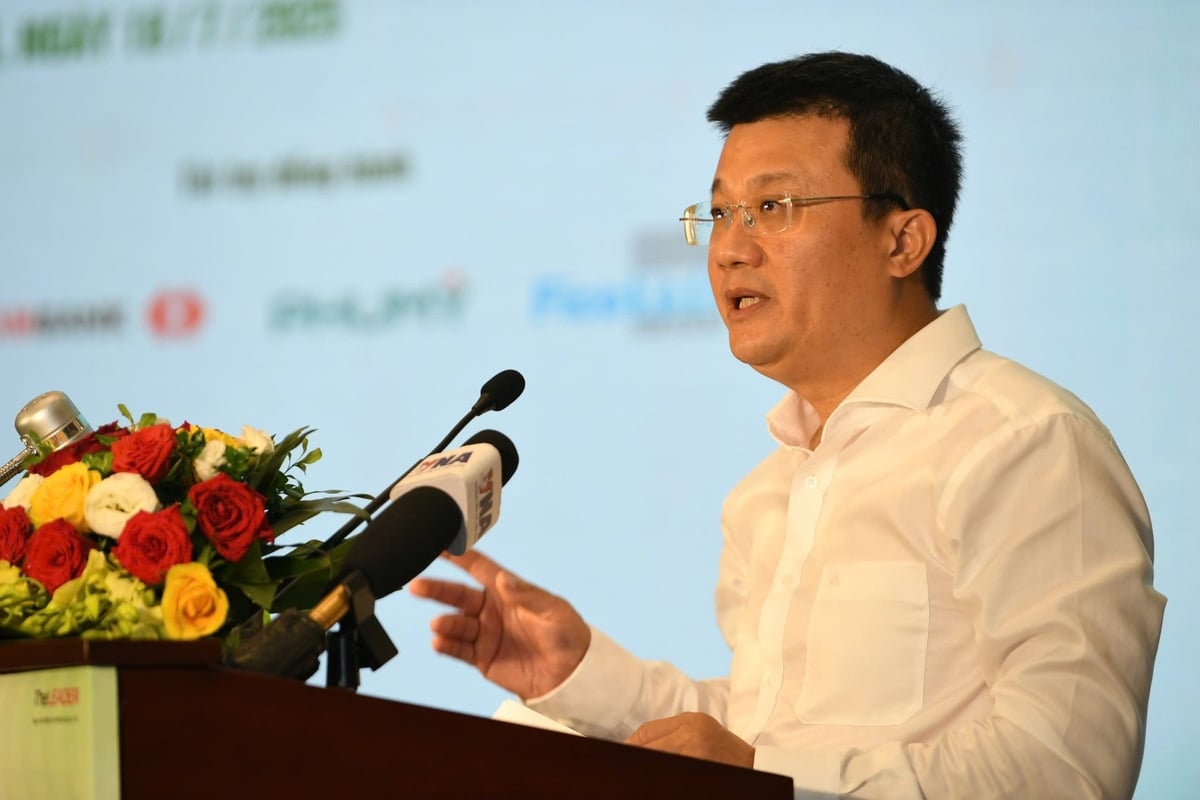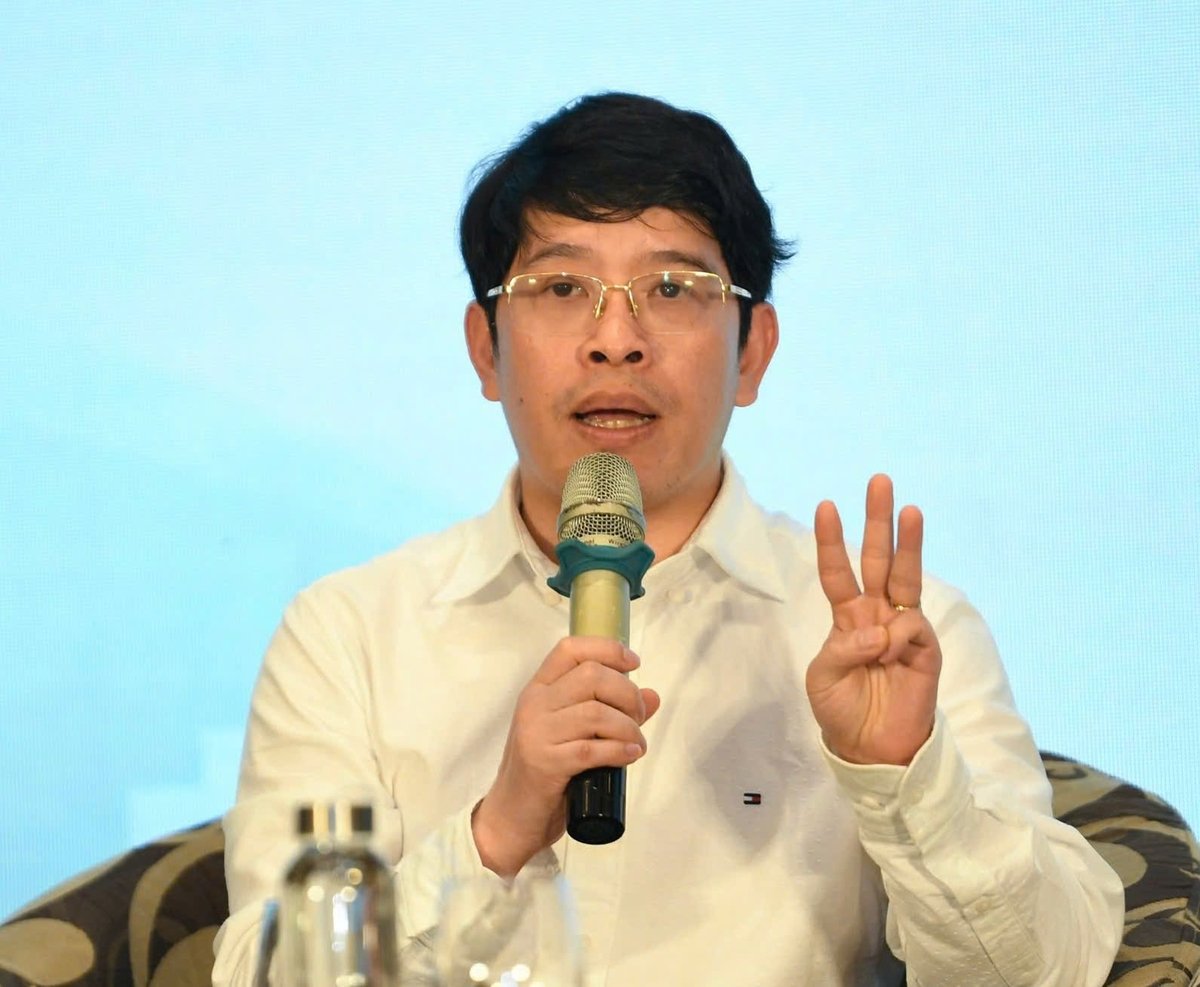December 31, 2025 | 00:25 GMT +7
December 31, 2025 | 00:25 GMT +7
Hotline: 0913.378.918
December 31, 2025 | 00:25 GMT +7
Hotline: 0913.378.918
With the theme "Carbon Market in the New Era", the Net Zero Vietnam Forum 2025 showcases Vietnam's steadfast commitment to achieving net-zero emissions by 2050, while simultaneously advocating for the establishment and operation of a carbon market as a critical economic instrument to achieve this objective.
Speaking at the opening of the event, Dr. Le Xuan Nghia, representative of the Institute of Development Consulting, emphasized: "Net Zero is the strongest commitment humanity has ever made and has attracted the participation of many countries worldwide. Nevertheless, this is not the ultimate destination. In order to effectively address the increasing severity of climate change, humanity must continue to advocate for more robust measures in the future.
Climate disasters are escalating at an unprecedented rate, as per Mr. Nghia. Epidemics, droughts, floods, and the severe degradation of land, water, and forest resources are no longer exclusively issues that affect developing countries; they have also impacted significant economies such as the United States.

Dr. Le Xuan Nghia assessed the net-zero commitment as an important and strong commitment of the world in its efforts to adapt to and mitigate the impacts of climate change. Photo: Orgnization Board.
Vietnam previously declared its commitment to achieve Net Zero by 2050 at COP26. Since then, numerous significant solutions have been implemented to mitigate greenhouse gas emissions in critical sectors, including agriculture, energy, transportation, and industry.
Vietnam is also committed to advancing renewable energy sources, such as solar and wind power, promoting a circular economy model, and improving energy efficiency. This commitment not only facilitates Vietnam's response to climate change but also establishes the necessary conditions for the attraction of investment resources and the expansion of international cooperation in the pursuit of sustainable development.
Nevertheless, Vietnam has a mere 25 years to execute the Net Zero roadmap, a brief period in light of the intricacy and magnitude of the dual objective: to simultaneously reduce emissions and sustain economic growth in order to become a high-income, developed nation.
Consequently, this year's Forum's objective was to advance Vietnam's Net Zero voyage by implementing policy, institutional changes, practical actions, and technological innovation in line with the latest global trends.
Immediately following COP26, the Vietnamese Government issued a plan to implement the Net Zero commitment with five key solution groups: energy transition, energy saving, protection and development of forest ecosystems, carbon capture and storage, and carbon pricing, according to Dr. Nguyen Tuan Quang, Deputy Director General of the Department of Climate Change (Ministry of Agriculture and Environment).

Dr. Nguyen Tuan Quang, the Deputy Director General of the Department of Climate Change, stated that Vietnam's net-zero commitment implementation plan comprises five primary solution groups, including carbon pricing. Photo: Organization Board.
Mr. Quang underscored the significance of carbon pricing as a solution, as it has the potential to mobilize the necessary financial resources for Vietnam and contribute approximately 28% to reducing greenhouse gas emissions. Currently, carbon pricing is implemented through two common mechanisms: a carbon tax, which imposes a fixed price, and a carbon market, which establishes emission limits and enables the trade of carbon credits and allowances.
Currently, the carbon market is implemented in two distinct ways: a mandatory market tied to legal regulations and a voluntary market designed to support businesses' carbon neutrality objectives. The Measurement, Reporting, and Verification (MRV) system is essential for guaranteeing the accuracy and transparency of transactions.
Vietnam has implemented an initial legal framework for the carbon market through Decree 119 and Decision 232. The plan anticipates that the pilot phase will commence in late 2025 and conclude in 2028. This phase will involve the unrestricted allocation of allowances and the establishment of a carbon exchange. The official implementation of auction mechanisms and international connectivity will commence in 2029.
Nevertheless, Mr. Quang also recognized that the carbon market in Vietnam faces numerous obstacles, including a lack of inter-sectoral coordination, limited technical capacity, and insufficient business awareness. To overcome these obstacles, it is imperative to finalize the institutional framework, enhance human resource training, expand international cooperation, and digitalize the system.
Assoc. Prof. Dr. Nguyen Dinh Tho, Deputy Director of the Institute of Strategy, Policy on Agriculture and Environment, stated at the forum that the carbon market will be one of the most critical instruments for mobilizing climate finance in the coming decade. He placed a high value on Vietnam's efforts to establish a legal corridor for the carbon market.

According to Deputy Director of the Institute of Strategy, Policy on Agriculture and Environment, Assoc. Prof. Dr. Nguyen Dinh Tho, the carbon market will be one of the most critical instruments for mobilizing climate finance in the coming decade. Photo: Organization Board.
However, for the carbon market to function efficiently, comprehensive technical guidelines must be implemented, and management and monitoring capabilities must be improved at both the local and enterprise levels. Vietnam's carbon exchange must be structured in accordance with international standards to guarantee transparency, efficiency, and openness in trading activities.
Speakers presented a plethora of studies, shared international experiences, and extracted lessons from businesses regarding the development of carbon markets within the event's framework.
Additionally, the Organizing Committee presented the "Outstanding Net Zero Journey" emblem to recognize initiatives, projects, organizations, and individuals who have made exceptional contributions to promoting sustainable development and emission reduction in Vietnam.
Translated by Linh Linh
/2025/12/29/0829-2-000508_274.jpg)
(VAN) Hai Phong is tightening management, with 100% of fishing vessels licensed and equipped with vessel monitoring systems, joining the national effort to lift the EC's 'yellow card.'
/2025/12/27/2744-1-121716_241.jpg)
(VAN) The Viet Nam Environment Protection Fund is the national environment protection fund and a state financial institution under the Ministry of Agriculture and Environment.
/2025/12/27/2015-2-111213_813.jpg)
(VAN) In efforts to realize the goal of Net Zero emissions, reducing urban emissions is regarded as a key solution.

(VAN) Deputy Prime Minister Tran Hong Ha requested to design the EPR mechanism toward a circular economy that is transparent, feasible, and non-administrative and aligned with actual recycling capacity.

(VAN) On December 24, Deputy Prime Minister Tran Hong Ha chaired a meeting about approving greenhouse gas emission quotas for 2025 - 2026 period.

(VAN) As Viet Nam enters a new era, the national agricultural sector must proactively adapt to global trends to transform current challenges into strategic development opportunities.
/2025/12/18/5046-3-154320_307.jpg)
(VAN) Granting planting area codes is a solution that helps Lao Cai manage forests effectively while also laying a data foundation to support the development of the carbon credit market in the future.